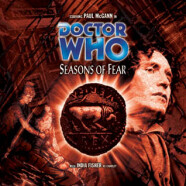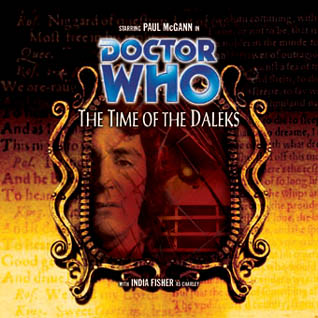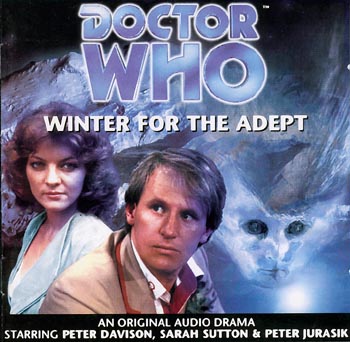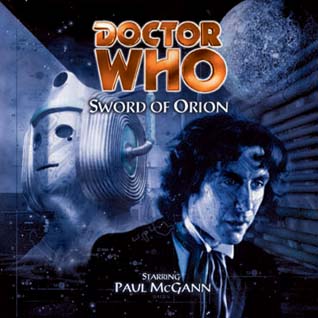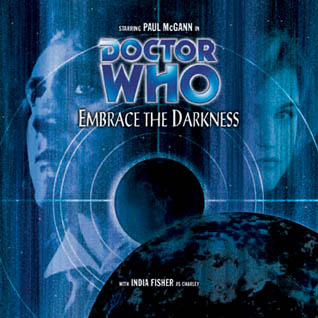Review – Big Finish Doctor Who #30: “Seasons of Fear”
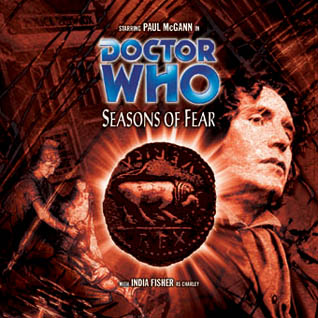 This is the next in line of my Big Finish Productions Doctor Who retro-reviews.
This is the next in line of my Big Finish Productions Doctor Who retro-reviews.
#30 – “Seasons of Fearâ€Â
From Big Finish’s site:
On New Year’s Eve, 1930, the Doctor lets Charley keep her appointment at the Raffles Hotel in Singapore. But his unease at what he’s done to time by saving her life soon turns into fear. Sebastian Grayle: immortal, obsessed, ruthless, has come to the city to meet the Time Lord. To the Doctor, he’s a complete stranger, but to Grayle, the Doctor is an old enemy.
An enemy that, many years ago, he finally succeeded in killing. And this is his only chance to gloat.
The Doctor and Charley desperately search human history for the secret of Grayle’s power and immortality. Their quest takes in four different time periods, the Hellfire Club, the court of Edward the Confessor and the time vortex itself. And when the monsters arrive, the stakes are raised from the life of one Time Lord to the existence of all humanity.
Written By: Paul Cornell and Caroline Symcox
Directed By: Gary Russell
Cast
Paul McGann (The Doctor); India Fisher (Charley Pollard); Stephen Perring (Sebastian Grayle); Stephen Fewell (Marcus / Richard Martin); Robert Curbishley (Lucillius / Nimon Voice); Lennox Greaves (Edward the Confessor); Sue Wallace (Edith); Justine Mitchell (Lucy Martin); Don Warrington (Rassilon); Gareth Jenkins (Waiter / Prisoner)
***minor spoilers ahead***
Want to know why Paul Cornell is one of my favorite Doctor Who writers? It’s stories like this one, on which he’s colloborated with Caroline Symcox set the dominoes into motion after they were set up for Charley so well in “The Chimes of Midnight.” This is the episode where Charley comes face to face with the reality that she should have died in the R101, but bringing it back to the idea that this is the Doctor’s show, this is the episode where the Doctor comes face to the face with the reality that the web of time doesn’t always sort itself out after creating a temporal paradox. In Star Wars vernacular, “This is where the fun begins.”
At the center of this adventure is Sebastian Grayle, who set up the date with Charley in an alternate timeline with the express purpose of meeting with his nemesis, the Doctor… who has no idea who he is, but now feels it’s his duty to become a thorn in the side of both Grayle and his Nimon masters. The Nimon, for those not in the know, are a parasitic race we haven’t seen since the Tom Baker era who resemble minotaurs. For Grayle, the Nimon are his means to immortality. For the Doctor, they are the destruction of the earth, the conquest of the galaxy, and the reason he needs to stop Grayle… and to learn their identity. That’s really supposed to be the big reveal at the end, but unless you’re a fan that digs deep, it’ll mean nothing. If you do know the Nimon, the fact is they’re less than impressive by comparion of the more memorable monsters in the canon. Besides… they’re listed in the cast list.  Good job, Big Finish. So much for spoilers.
See if this feels familiar, 11th Doctor fans:
Grayle: “Doctor. Is that what they called you? Doctor who?”
Doctor: “My enemies never ask me that. Isn’t that terrible, that they know me better than my friends?”
I mention this because it works here so much better than it did when legions of Daleks asked the question, and it’s yet another in my continuing list of examples of things that the current TV series latches on to and makes a big deal out of, but that Big Finish did first. Here’s why it’s better in audio: it’s not the focal point. There isn’t an entire, contrived mess of a story built around the need to ask the question. Hit the beat, then continue on. Let it simply exist as a moment of snarky in a tense coversation rather than as the lame excuse for the Daleks to go nuts.
Here’s another one: companion saves Doctor’s life, disobeying his orders in the process. Admittedly, it should be something special, not something every companion gets to do, but it’s something every companion seems to get a turn at these days. Rose got to swing around on a chain and drop some anti-plastic. Yay for Rose. It takes guts to fight a plastic monster, but… Charley weilds the mystical sword of the pagan god Mithras to protect her Doctor from a Roman soldier / immortal wanna-be. Style points for the story showing us that Roman soldiers can defeat a Dalek in open combat in mere seconds, thus making our villain something of a threat in his pre-immortal stage and making Charley that much cooler in her moment of glory. It’s not that I think any less of Rose, it’s that I think considerably less of the writers that let Rose and her later counterparts down.
What was that Dalek doing there? Time’s in flux, didn’t I mention? It’s the kind of thing that allows the Doctor and Charley to find the caves used by the Hellfire Club (you know they have fond memories of that), and that allows Benjamin Franklin to be listed as one of the American Presidents. See that? When it’s overdone, it’s the result of a hack writer.  When it’s used lightly and with effect, that’s the touch of a master. And it’s this time flux situation that allows this story to get really good. All those questions about time travel and paradox and non-sequential timelines take center stage in a way that the Doctor is able to completely dismiss at first as just another day in the office, but builds along Charley’s story into something that will carry devastating consequences. And just to hint at it, we not only have that Dalek, which will mean something a few episodes from this point, we also get another refrain of the Zagreus nursery rhyme. The threat builds. What does it mean? Well, not to put a fine point on it or anything, but it means “Bad Wolf” without an ending our heroes want to accept. How’s that for a teaser? Wheels within wheels, worthy of the creative teams at Big Finish. Worthy of Doctor Who.
More immediate than the Gallifreyan boogeyman or the Daleks, the time flux makes the threat of Grayle and his Nimon masters far more threatening than they really should be. That’s one of the reasons I enjoy Cornell’s work; in his hand, even the little things can be big. And he’s not afraid to ask the big questions of sci-fi and fantasy. In this one, the question at hand is the one of immortality. What makes it right for the Doctor and wrong for someone like Grayle? What’s the difference in their variations of immortality? And why does this particular menace seem to give the Doctor a sudden need to check his higher moral standards at the door?
The development of Grayle’s character is astounding, and it really is a highlight of this audio. In the course of that development, we actually get quite a bit of development on the Doctor and Charley as well. One serves to build the other two, and that in turn develops the tension in the plot. That development for the Doctor and Charley serves not only for this audio, but for the course of their entire story arc, building the tapestry that made their run so special in my eyes. Add in a dash of dry humor here and there, and the result is a solid and superior addition to the Big Finish Doctor Who lineup. The thing is, you’ll probably be left wanting more when it’s over as this one ends on a cliffhanger.

